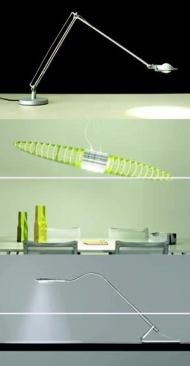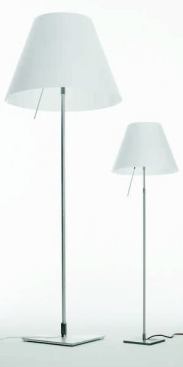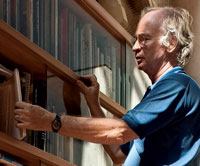Courtesy LucePlan
Alberto Meda
A|L: What continues to inspire you after all these years?
Paolo Rizzatto: It is all of our life, all of our experience, all of our research, and our memory. Sometimes it can happen a way that can be mysterious or unconscious, other times it can very clear and rational.
Alberto Meda: You don’t normally start with: Today I must do this. Rather you start thinking about something years ago, and you are always to some extent thinking about it. You are always looking around to find a solution.
A|L: What are some of the things that interest you now?
Alberto Meda: We are exploring LEDs. We think that will be the future of light, but it requires some real testing.
A|L: Because the design of each fixture is specific to its lamp source, do you ever go back and revisit a luminaire? Would you consider modifying it with a different light source? Or does it go against how you originally thought about the light fixture?
Paolo Rizzatto: It’s a good question. For instance, with the Berenice lamp, in the original design the bulb and the rounded glass top would get very hot, you had to be careful not to touch it. But if we modify it to work with an LED, this top part no longer gets hot to the same extent. In this instance, changing the source has in fact helped to improve the luminaire.
A|L: How do issues of sustainability and energy efficiency impact the design of a new luminaire and the manufacturing process? How does LucePlan address these issues?
Paolo Rizzatto: It’s a very important problem. When I started as a student looking at the problems in architecture I was not necessarily aware of the fact that the resources of the earth were limited. I was thinking about other problems. I could never imagine we would be thinking in these terms. But now I know, and I must think about this when I make a project. This point must be one of the important elements of my project, and I must think about this as any other element in the project like the function, like the quality, the cost, the beauty. And there is also this, sometime you must make a choice—a project is always a compromise. If you have a lot of constraints its easier to do a project, its terrible when you make a project and you have no constraints.
For this reason we do not produce lamps in large quantities, but rather a luminaire that can have a long life. We are not interested in putting a lot of “stuff” on the market just to say we have something new.



